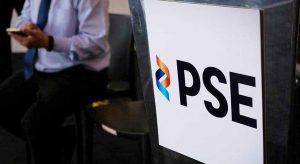Heightened interest in cryptocurrencies, globally and locally

After more than 10 years since bitcoins were first transacted, the cryptocurrency market has been growing both globally, with Philippines actually considered one of the world’s fastest adopters of cryptocurrency.
As of 2021, Singapore-based cryptocurrency payments company Triple A estimated global crypto ownership rates at an average of 3.9%, with over 300 million crypto users worldwide, plus over 18,000 businesses already accepting cryptocurrency payments. Among continents, Asia gets the biggest share with 160 million, followed by Europe with 38 million and Africa with 32 million.
Year 2021 has even been considered a defining year for cryptocurrency, with all-time highs for the world’s top two cryptocurrencies by market value and heightened popularity of non-fungible tokens (NFTs).
The first quarter of 2021 witnessed bitcoin, the first and top cryptocurrency, hitting $1 trillion in market value, according to digital currency information platform Coindesk. Bitcoin reached its record high of $67,016.5 in October 2021. Ether, meanwhile, peaked its price to as high as $4,643 in November 2021. As of the same month, cryptocurrency data aggregator Coin Gecko estimates the cryptocurrency market’s worth at over $3 trillion.
The uptick in bitcoin’s market value, CNBC.com reported in February that year, has been fueled in part by increased adoption of bitcoin by companies like automotive and clean energy company Tesla, which announced a $1.5 billion investment in bitcoin under its changed policy as well as its acceptance of the currency as payment for cars.
The previous year also witnessed the increased attention over NFTs, or digital assets representing real-world objects like art, music, in-game items and videos which are bought and sold online, frequently with cryptocurrency. One notable proof of this hype was when Christie’s was the first auction house to sell a fully digital, NFT-based artwork. The artwork, a digital collage, was sold for over $69.3 million, which is considered record-breaking for a sale of an NFT.
Alongside these developments, cryptocurrency is gaining more interest in the Philippines. Triple A estimates that over 4.3 million people, or 4.0% of Philippines’ total population, currently own cryptocurrency.
As BusinessWorld reported last December, the Bangko Sentral ng Pilipinas (BSP) recorded that cryptocurrency transactions in the Philippines rose 362% as of the first half of 2021. According to BSP Governor Benjamin E. Diokno, these transactions were worth P105.93 billion in June that year, which is up 71% over the same period.
This rise follows a five-fold increase in the value of transactions processed by virtual currency exchanges (VCEs) to P76 billion in end-September 2020 from P14.9 billion in end-September 2019. The volume of transaction, meanwhile, went up by nearly 36% to 7.2 million from 5.3 million in 2019.
The country has ranked well in cryptocurrency adoption indices. In the Cryptocurrency Adoption Index of Australian global fintech platform Finder, the Philippines currently ranks 10th out of 27 countries. The country’s crypto ownership rate is at 16.6%, which is higher than the global average of 14.6%.
Moreover, the Philippines is also seen as a top adopter and owner of NFTs, largely attributable to play-to-earn (P2E) NFT games like Axie Infinity. Another survey by Finder showed that the country ranked first in NFT ownership out of 20 countries, with 32% of Filipino internet users saying that they own NFTs. In the platform’s NFT Gaming Adoption Report, meanwhile, the Philippines ranks the 4th highest out of 26 countries, with one in four Filipinos having played P2E NFT games.
Meanwhile, in the Global Crypto Adoption Index by blockchain data analytics firm Chainalysis, the Philippines ranked 15th out of 157 countries. On a scale of 0 to 1, with a number closer to 1 indicating a higher rank and higher adoption, the country scored 0.16.
Furthermore, the country’s cryptocurrency space has been expanding with the active participation of several local financial institutions and fintech companies.
As early as 2019, for instance, UnionBank has done its share when it set up the country’s first cryptocurrency automated teller machine that enables users to exchange digital units for cash. More recently, the Aboitiz-led lender has partnered with digital asset custodian Hex Trust to pilot its digital asset custody service. The pilot is set to run first as an internal service for UnionBank employees to prepare the bank to launch a fully commercialized service for customers.
Digital bank Paymaya Philippines, Inc., which recently relaunched its mobile app as Maya, has rolled out a cryptocurrency feature in its app which allows its users to buy and trade digital currencies, and so help make cryptocurrencies more accessible to the public.
GCash is also moving into the cryptocurrency space as the mobile wallet has allowed its users to buy crypto from their GCash wallets across VCEs such as Binance, Philippine Digital Asset Exchange (PDAX), and Paxful.
Last year, PDAX added seven new cryptocurrencies which for the first time are offered on a local exchange and available to trade directly with the Philippine peso. Then, earlier in February, the exchange added five more coins to its list, totaling the currencies available on its mobile app to 19.
Another interesting development within the local cryptocurrency space is the possibility of the Philippine Stock Exhange (PSE) to host crypto trading. In July last year, PSE President Ramon S. Monzon said that since crypto is an asset class that cannot be ignored, a structured trading of crypto in the country should be hosted by the local bourse so that it can engage in investor education and protection.
“We’re waiting for the rules from the Securities and Exchange Commission on how crypto or digital asset trading will be governed,” Mr. Monzon, was quoted as saying in a BusinessWorld report. — Adrian Paul B. Conoza




